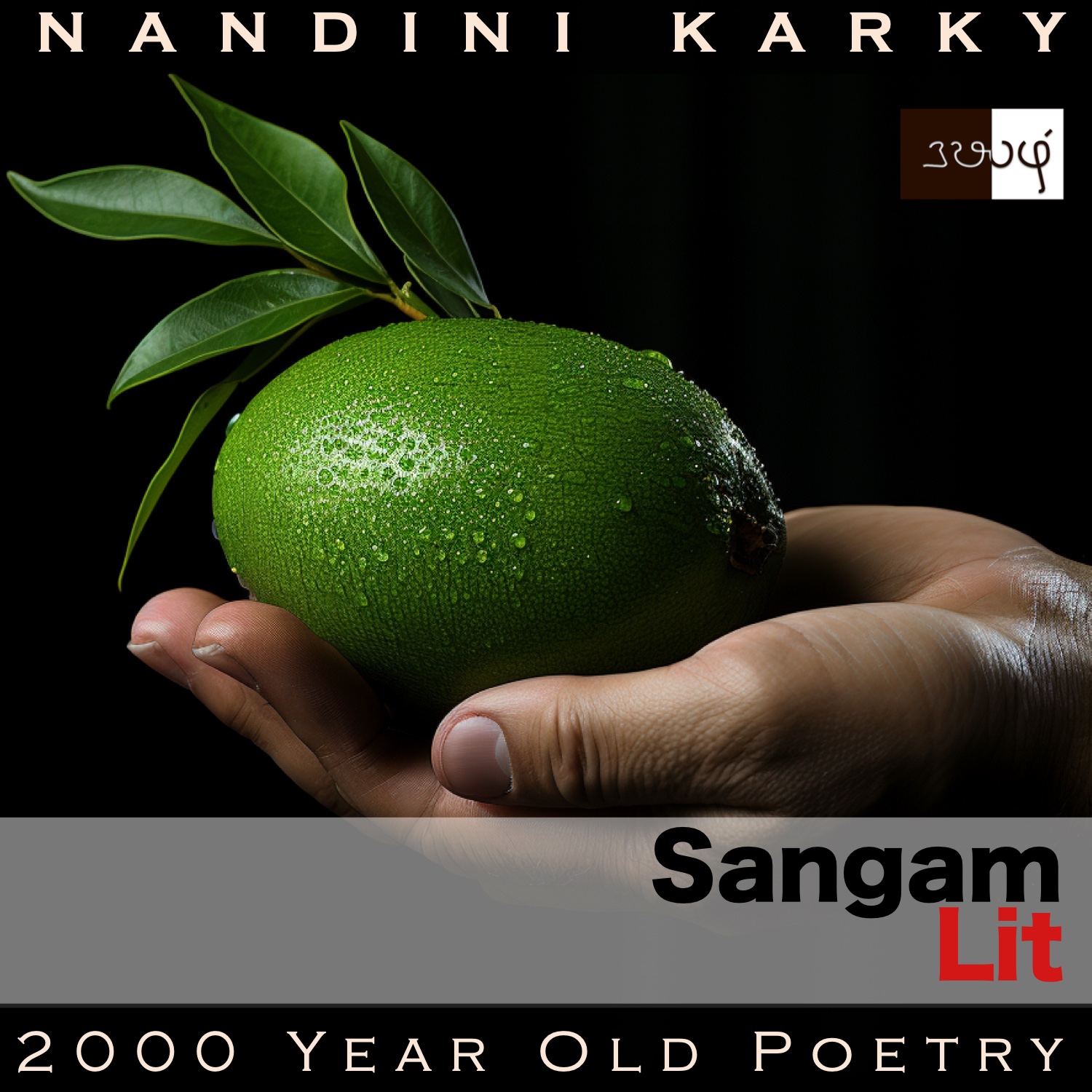Podcast: Play in new window | Download
Subscribe: Apple Podcasts | Spotify | Amazon Music | Android | iHeartRadio | TuneIn | RSS | More
In this episode, we perceive the angst of a poet, as portrayed in Sangam Literary work, Puranaanooru 207, penned to a Velir King’s brother Ilavelimaan by the poet Perunchithiranaar.. The verse is situated in the category of ‘Paadaan Thinai’ or ‘Praise’ and illustrates aspects of giving without the right spirit.

எழு இனி, நெஞ்சம்! செல்கம்; யாரோ,
பருகு அன்ன வேட்கை இல்வழி,
அருகில் கண்டும் அறியார் போல,
அகம் நக வாரா முகன் அழி பரிசில்
தாள் இலாளர் வேளார் அல்லர்?
‘வருக’ என வேண்டும் வரிசையோர்க்கே
பெரிதே உலகம் பேணுநர் பலரே;
மீளி முன்பின் ஆளி போல,
உள்ளம் உள் அவிந்து அடங்காது, வெள்ளென
நோவாதோன்வயின் திரங்கி,
வாயா வன் கனிக்கு உலமருவோரே.
It appears as if we are in a series of songs revolving around situations, wherein Sangam poets shook their heads in disbelief and disappointment. The context of this verse is when this poet approaches a Velir King Velimaan with a request to allay his poverty. That happens to be the time when King Velimaan is dying and so he instructs his younger brother, Ilavelimaan, to take care of this poet and honour him with gifts. When Ilavelimaan fulfils his brother’s wish half-heartedly, the poet says these words:
“Rise now, my heart! Let’s go! As if drinking something without liking that; even though they are right next, acting like a stranger; with no smile from their heart; with a frown on their face, when one renders a gift, only those who do not have the strength and ability to seek another will accept that! But worthy supplicants wish to be welcomed heartily when they line up at the gates. Huge is this world! And many are such patrons! Rise up like a strong and powerful Aali, without taming your raging feelings! For who would stand before one, who does not render with sympathy, and continue to yearn for that unripe fruit being granted?”
Let’s try to understand what about the king’s actions has made this poet angry. The poet commands his heart to rise immediately, so that they both could leave from there. When his heart turns to him and asks why this furious command, the poet points to the way the patron gave them their gift. The kind of feeling one has when drinking something not to their liking, and with no smile whatsoever from his heart, turning his scowling face away, and acting as if the poet was a random stranger. The poet adds that when a gift is given this way, only those who have no hope and determination in their hearts will stand there, nod and accept it from that patron. But people who value their self esteem would turn away and go in search of others who would warmly welcome them. He tells his heart the world is so big and that they are sure to find such patrons. The poet then rouses his heart to rise up, without subduing its innate feelings, like an ‘Aali’, a mythological creature, about which we will discuss shortly. He concludes with a rhetorical question asking would there be anybody who would yearn for an unripe fruit of a gift granted without true concern!
Strong reproof against the patron indeed! Reverting to the mention of that mythological creature ‘Aali’, we learn that this animal is the ancient Tamil representation of strength and protection. Even today, you will find stone carvings of this animal in many South Indian temples – the image of a lion-like creature with an elephant’s trunk. It’s doubtful that this creature existed anywhere other than in the imagination of the people of then. Like the Chinese have their dragons, the Egyptians have their sphinx and the Scots have their Loch Ness Monster, I’m sure the Tamils’ Aali too emerged from the folklore of ancient people, projecting their beliefs on extraordinary animal forms. Turning from the supernatural to the real, we delve into the relatable feelings of this poet who feels insulted by the lack of warmth in the patron’s giving. For the timeless truth is that it’s not what is given but how it’s given that matters more to human minds!




Share your thoughts...